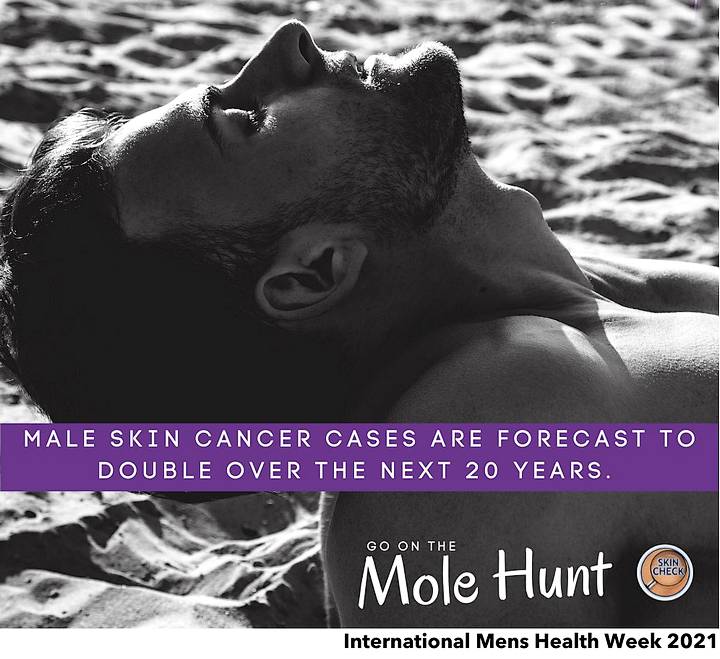 A price will be paid for increased sun exposure but prompt detection and treatment make a substantial difference to outcome.
A price will be paid for increased sun exposure but prompt detection and treatment make a substantial difference to outcome.
That men often don’t care for their health as effectively as women remains a cultural reality, although the position has changed in recent decades. A generation ago, men in the UK lived to 70 on average, whereas 80 is now the norm.
Advances in medication and treatment have helped but heightened awareness on prevention and early detection of health problems has mattered equally. Initiatives such as Men’s Health Week (June 14th-20th this year) play a key role in increasing awareness.
This initiative began with legislation in the US in 1994, before being adopted by organisations such as the World Congress on Men’s Health. The emphasis can vary from country to country but an overriding aim is to improve the take up of health screening and treatment.
Preventing Cancer Deaths
Cancer is the leading cause of death for men in the UK. They are 14% more likely to develop cancer than women and at notable risk from the UK’s fastest growing cancer.
Melanoma rates have increased 400% since the 1970s and continue to grow. Men over 50 are more likely to develop melanoma than women and at all ages, less likely to survive the disease, in part due to inherent behaviour.
There are biochemical differences in men’s skin, from being thicker, to having higher levels of collagen and elastin. The natural repair mechanism may also be slightly less efficient but none of these variations are the primary issue.
Men have historically been less likely to use sun protection, or to seek medical help when early symptoms appear. The origin of higher mortality rates from skin cancer is behavioural, when this does not need to be the case.
Screening & Treatment
The increased take up of skin cancer screening has made a difference to longevity. This tends to be thought of as a wise, precautionary step when no symptoms are known but there are other sides to screening.
If you have had skin cancers in the past, screening can be vital. The same applies if you have a family history of the disease, or other medical factors which might add risk, or the most important risk of all.
If you develop a sudden, ongoing change on your skin, from new, or varying moles, to other unexplained lesions, ignoring them is not rational. Having them professionally examined is a form of screening and can be a life saver.
We are surviving longer because of screening, early diagnosis and improved treatment. This only applies if we use the advantages progress has delivered.
Protecting Yourself
There is nothing weak, or unmanly about avoiding the hottest part of the day, using sunscreen, or wearing fashionable protective clothing. Neither is visiting a doctor any more than looking after your physique.
Lockdown hasn’t helped, with gyms closed and more time outdoors, men also tend to have higher outdoor exposure through work, or greater body exposure when in the sun. Extra care should be a logical factor of being male.
Take the time to protect yourself and in future years, you will be truly grateful that you did. None of us want lumps cut out of our body, or cancer spreading from our skin to lymph nodes and vital organs.
Above all, keep an eye on your skin and if you see a potential issue, don’t ignore this. Skin cancer treatment really has improved beyond recognition, all we ask is the chance to treat the disease as early as possible.
